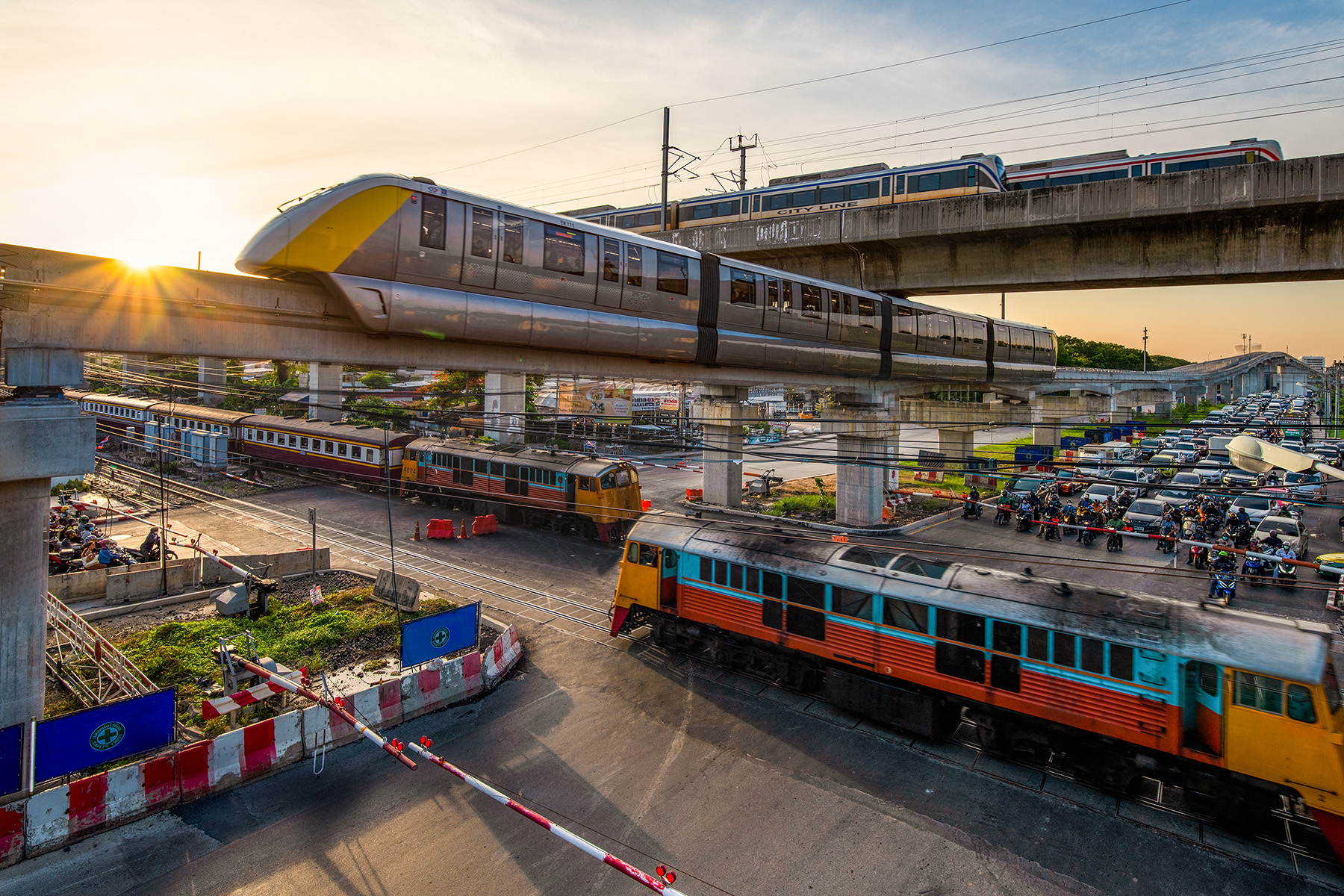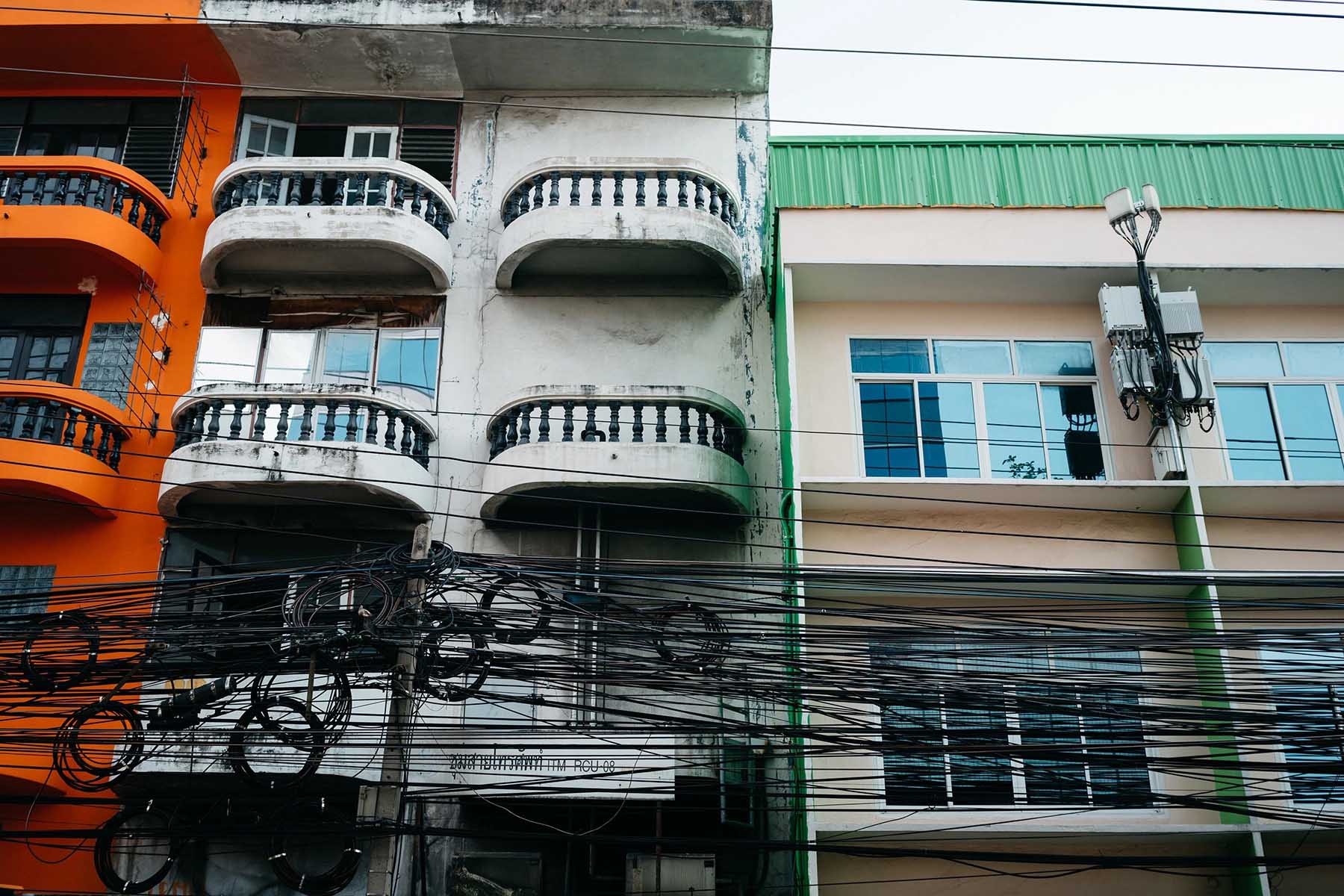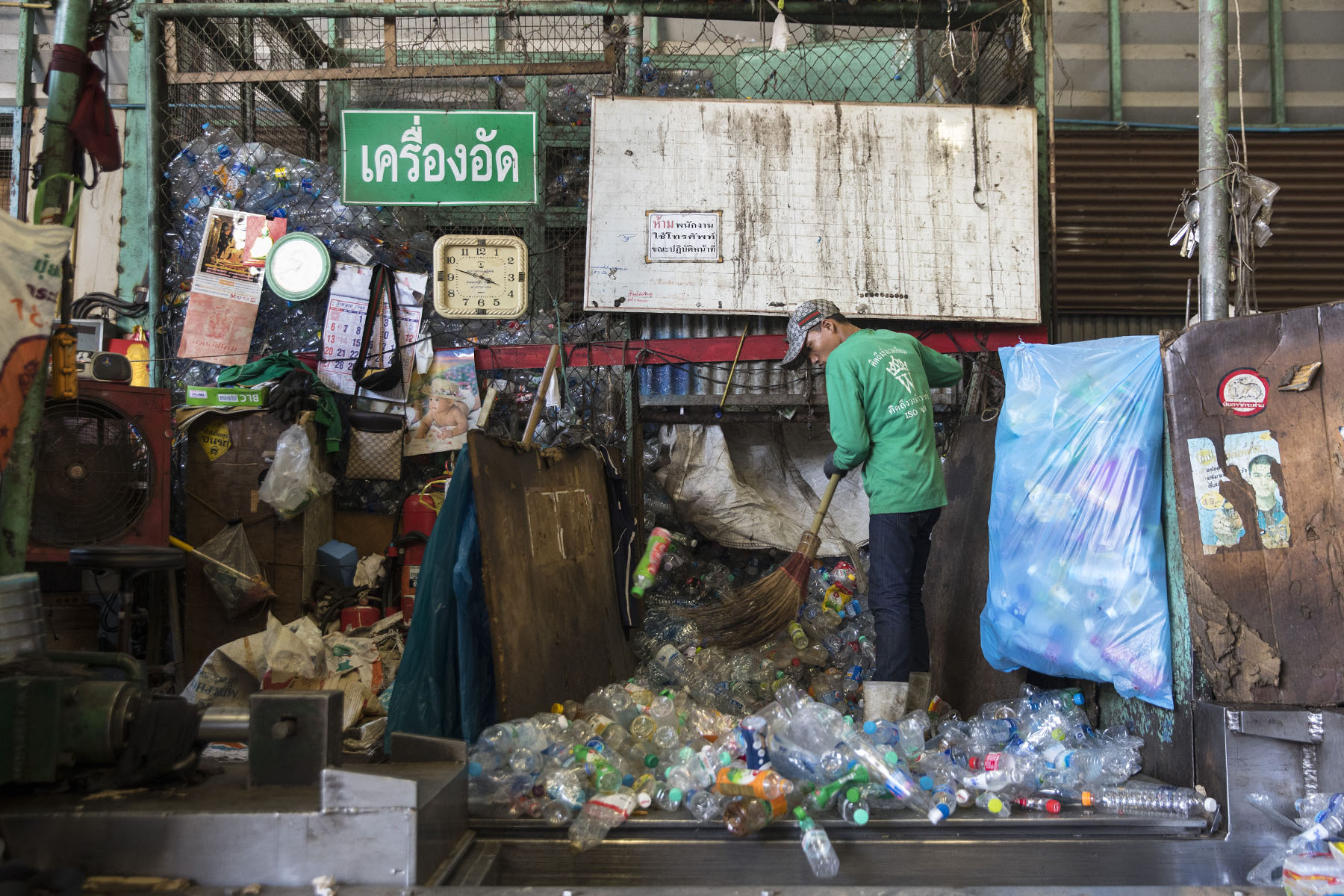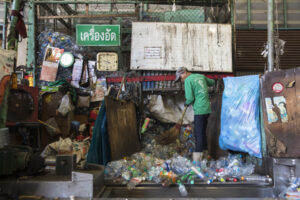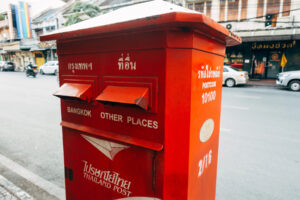Many parts of Thailand (ประเทศไทย) look like a lush green paradise, but there’s bad news for the eco-conscious international. The country has a huge petrochemical sector, which leads to serious waste. In fact, Thailand is ranked sixth globally when it comes to improperly disposed of plastic. You can try to do your bit by recycling your household waste, but it can feel like an uphill battle.
Fortunately, things are looking up. The Thai government is now trying to move toward a circular economy, a green model that prioritizes waste reduction and recycling. This means that in the future, those looking to reduce their carbon footprint will have an easier time.
Until then, you can follow the tips outlined below for a more sustainable life in Southeast Asia:
- 1. Reduce your energy consumption
- 2. Use green transport options
- 3. Compost at home
- 4. Get involved with the sharing economy
- 5. Shop locally
- 6. Download the right green apps
- 7. Go paperless with your banking and bills
- 8. Watch your water usage
- 9. Replace those old appliances
- 10. Recycle, recycle, recycle
- Useful resources
1. Reduce your energy consumption
Unfortunately, it’s not easy for the average expat to live sustainably in Thailand by switching energy providers, as utilities are provided by the state. Instead, you’ll have to work to cut down on your energy use in general. In a way, it’s actually a win-win: you’ll be doing your bit for the planet and enjoying lower energy bills at the same time.
A good tip here is to take inspiration from your local neighbors. Most Thais don’t even own a tumble dryer. With year-round sunshine, it’s easy to hang your clothes up to dry. Use a covered balcony or set up a clothes horse beside your window if you’re worried about rain clouds overhead.
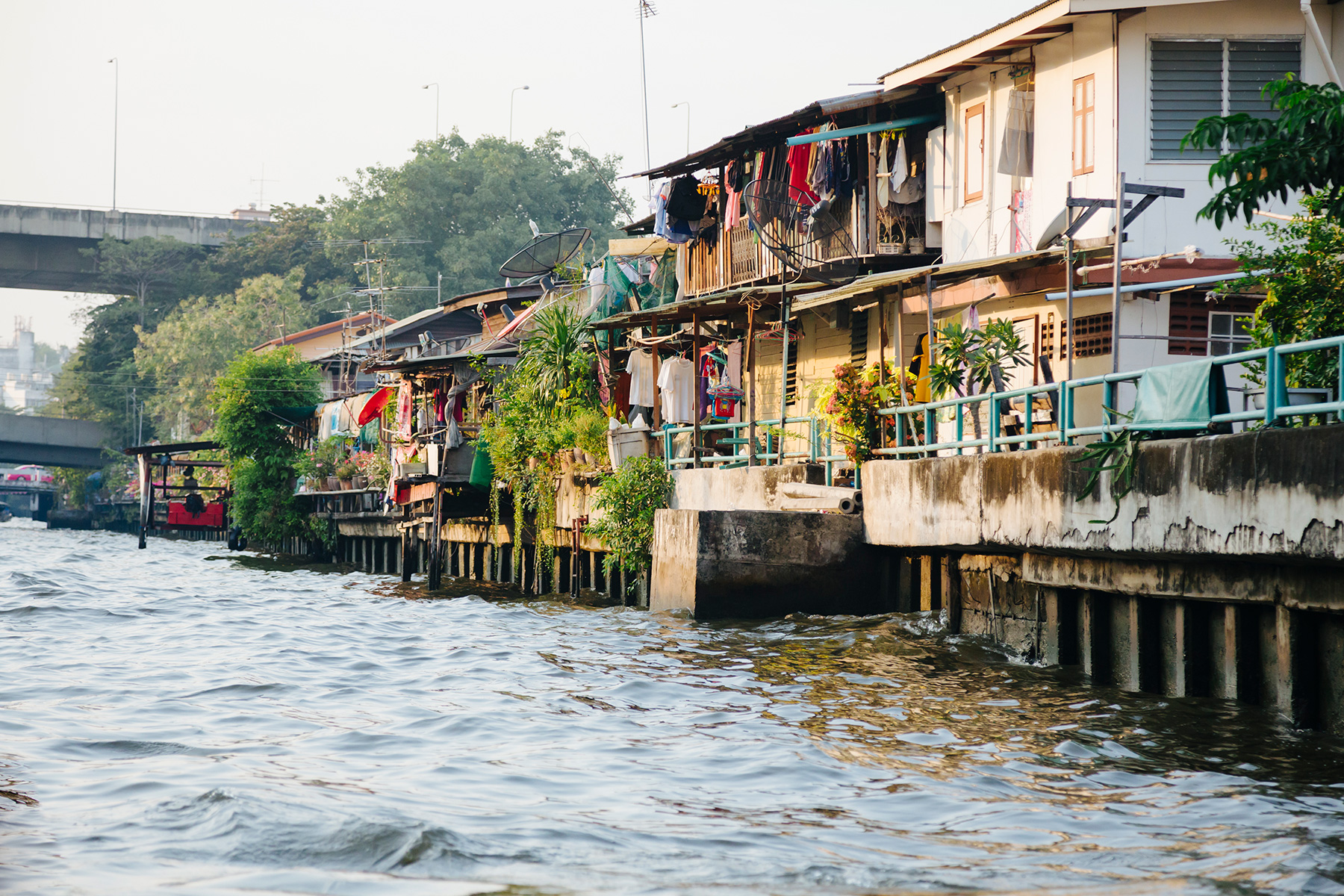
You can also try to use the AC less. Rather than leaving it blasting all night, set it to automatically turn off an hour or so after you’ve fallen asleep. If you can cut down on AC by using fans instead, you’ll make a significant dent in your energy usage.
Although you can’t switch to a renewable energy provider, Thailand is slowly embracing green energy (พลังงานสะอาด) sources. To meet the government’s goal of 30% renewable energy by 2037, large green projects have been built around the country, including the world’s largest floating hydro-solar farm.
2. Use green transport options
If you’re living in a Thai city, you’ve probably already realized that buying a car can cause more problems than it solves. Bangkok (กรุงเทพฯ) is the second-most congested city in the world, and the last thing it needs is more private cars on the roads.
Around the Bangkok area, your best options are the BTS (รถไฟฟ้า BTS) and MRT (MRT), two rail systems that will let you avoid those traffic jams altogether. The MRT runs underground, while the BTS, known as the sky train (รถไฟฟ้า), will let you look down on the congested roads as you zoom to work in air-conditioned comfort.
Another way to stay out of the traffic jams is by taking one of the khlong boats (เรือคลอง) that run along the Saen Saep Canal (คลองแสนแสบ). These water buses are a speedy way to get to your destination. You may wince at the thick black fumes they emit. However, while it’s certainly true that they could be more eco-friendly, they carry a large number of passengers at a time, which makes them significantly more sustainable than private vehicles. In the coming years, Thailand aims to increase the number of electric vessels (PDF) available.
If you must travel by road, look for green-friendly options. Thailand’s buses aren’t a particularly fast option, but they’re very cheap, and they’re better for the planet than taking a car.
3. Compost at home
Although there is no official government composting initiative to help you live sustainably in Thailand, composting is widely practiced around the country. Organizations like the Sustainable Maikhao Foundation (มูลนิธิไม้ขาวยั่งยืน) and the EcoThailand Foundation (มูลนิธินิเวศวิถี) offer guides to setting up your own home composting unit.
PakDone (ผักDone) is a local company that even allows city dwellers to compost. It supplies compact clay composting towers that are just the right size for your balcony or the corner of a small garden. If you’re into high-tech solutions, you can also opt for an electronic food waste composting machine from HASS Thailand.
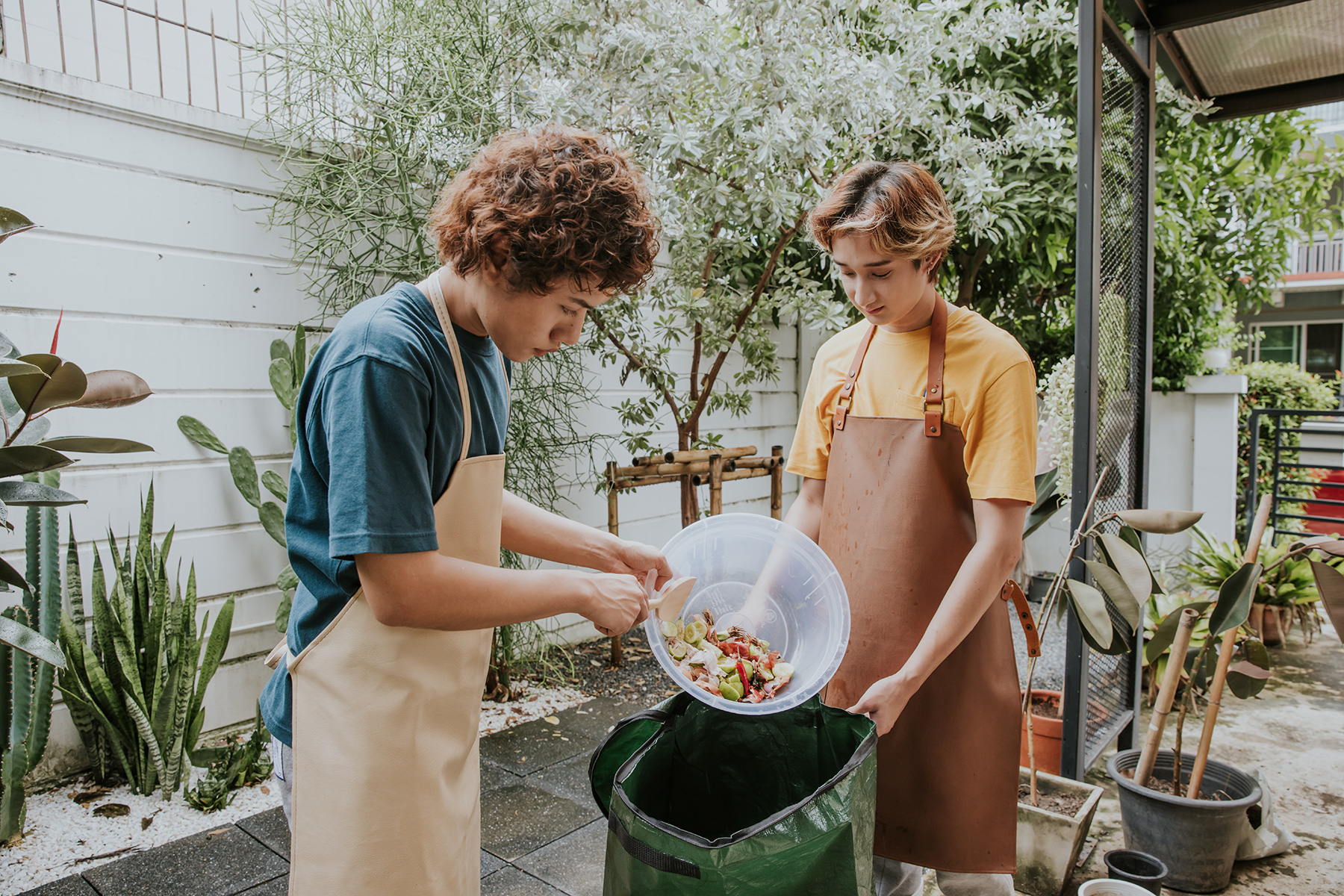
Composting is a great way to cut down on food waste. You can use up a lot of your old kitchen scraps, including eggshells, tea bags, coffee grounds, and fruit and vegetable peelings. If you’re growing a few potted plants on your balcony or you have a garden, composting will give you richer soil.
Even if you don’t have a green thumb, try asking around locally. A neighbor who’s a keen gardener will usually be happy to take the contents of your compost bin.
4. Get involved with the sharing economy
A great way to live more sustainably is to share transport, items, and other services. Thailand has plenty of options for internationals to take advantage of the sharing economy.
Grab (แกรบ) is well-known as an alternative to taxis. The app, which is popular across Southeast Asia, allows users to hail a motorbike rider or cab and also offers delivery services. Many users don’t know that this super-app also has a ride-sharing component, GrabHitch (แกร็บฮิทช์). This allows drivers with space in their cars to pick up passengers. It’s a cheap, sociable alternative to taking a taxi, and it’s also great for the environment.
Furthermore, remember that one man’s trash is another man’s treasure. For example, take your old disposable chopsticks to Bangkok’s Fatima Handicraft Shop (ร้านหัตถกรรมฟาติมา), where local artisans will transform them into crafts and souvenirs. The Dasa Book Café will pay you for your used books and is also a great place to pick up some second-hand reading material.
You can also find a home for your old garments on Swoop Buddy, a popular Thai clothes-swapping platform. It regularly organizes events where you can donate unwanted clothes and accessories and pick up some cool second-hand outfits.
5. Shop locally
Avoiding air miles should be a priority for every wannabe eco-warrior. Luckily, Thailand is the perfect place to shop locally for food. The tropical climate means that you’ll have a wealth of great locally-grown fruit and vegetables to choose from at very affordable prices.
Try shopping in markets (ตลาด) rather than supermarkets to avoid unnecessary packaging. You might need to brush up on your language skills first, but it’s a great way to immerse yourself in the local culture and live sustainably in Thailand at the same time.
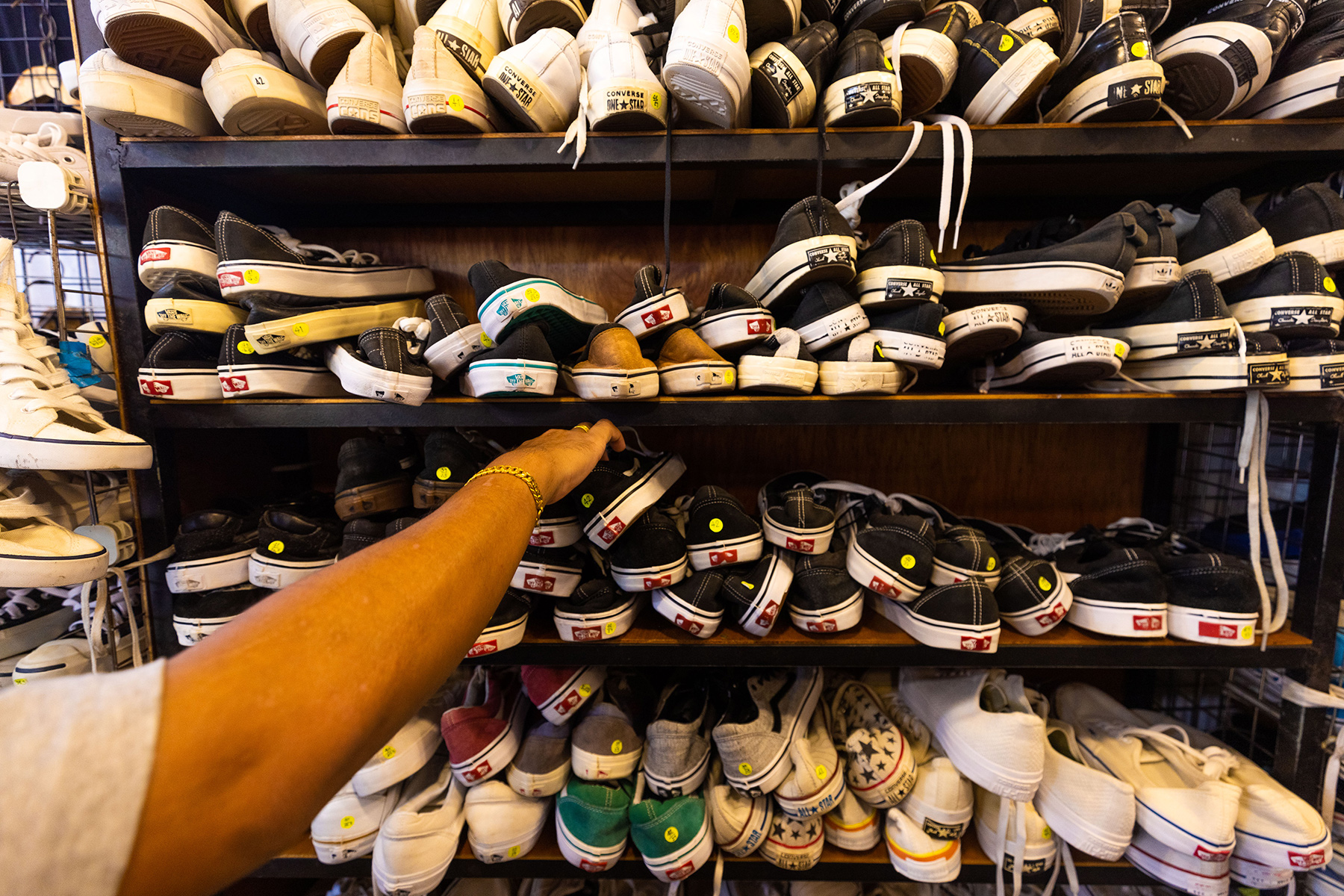
It can be harder to shop locally when it comes to clothes and shoes, especially if you’re looking for larger sizes. Try visiting Bangkok’s Chatuchak Market, which caters to internationals. Krung Thong Plaza (กรุงทองพลาซ่า) is the best option if you want locally-made plus-size gear.
6. Download the right green apps
One of the most popular eco-friendly apps is Thailand’s home-grown Yindii. It’s dedicated to fighting food waste and lets restaurants and shops post their unsold meals or ingredients at the end of the day. Consumers can then grab these tasty treats for big discounts.
The daily deals always depend on what shops haven’t sold, so you’ll never be able to guarantee that a particular product is available. If you’re an adventurous eater, this can be a great way to pick up something for dinner while also helping to combat food waste.
The GEPP Rewards app allows you to earn bonuses for recycling. You can upload the items you’re looking to recycle, and the GEPP platform will match you with a local collector. You’ll score points every time you recycle, which can be exchanged for vouchers and special deals at restaurants, cafés, and shops.
7. Go paperless with your banking and bills
Anyone with a bank account in Thailand, a work permit, or a visa already knows that going totally paperless is impossible. The country still relies heavily on physical bank books, and not everything can be done online. Mobile apps are now standard at Thai banks, but they don’t always have the same standard features that you can find in other countries.

That said, there are a few ways to reduce your paper usage at the bank. Thailand’s ATMs let you carry out a range of operations and will usually prompt you to decide if you want a receipt or not. You can also pay most of your bills online, although you’ll usually need to first go into your branch to set up your standing order or direct debit. Once you’ve done that, you’re well on your way to paperless banking and living sustainably in Thailand.
8. Watch your water usage
If you’re not used to Thai-style showers, you might experience some major culture shock. Traditional Thai bathrooms don’t have a separate shower cubicle, so water goes everywhere. This means you’re likely to waste a bit of water, so only turn the water on as you need it. You might want to lather up and shampoo your hair with the water off, then rinse off with a short, sharp blast.
Before you start your shower, place any toilet paper well out of the way. It’ll get wet when your water is running, which means more waste.
As for drinking water, tap water is not considered safe enough for general consumption. However, buying bottled water isn’t an ideal solution because of the plastic waste it generates. One way to avoid this is to purchase large, 20-liter water bottles, which are refilled. You pay a deposit on each bottle, then only for the water. If fetching and carrying these heavy bottles is not an option, a water filter fitted to a tap or a filter jug is another sustainable way to get drinking water.
Thai homes rarely have bathtubs, which is good news for both the environment and your utility bills. Sophisticated eco-solutions such as low-flow taps or water sensors are not readily available in Thailand, so you’ll have to pay attention to keep water usage down.
9. Replace those old appliances
Upgrading old appliances is a great way to save energy and help you to live sustainably in Thailand. The Electricity Generating Authority of Thailand (EGAT, การไฟฟ้าฝ่ายผลิตแห่งประเทศไทย) has a rating system (in Thai) for appliances, based on their energy efficiency. The maximum score is five.
If your appliances, particularly air conditioners, and refrigerators, have lower scores, you can make a big difference by upgrading them. The label will also show the year your appliance received its energy score. Remember, appliances’ quality degrades over time, so even an item with five stars may become inefficient after a few years.
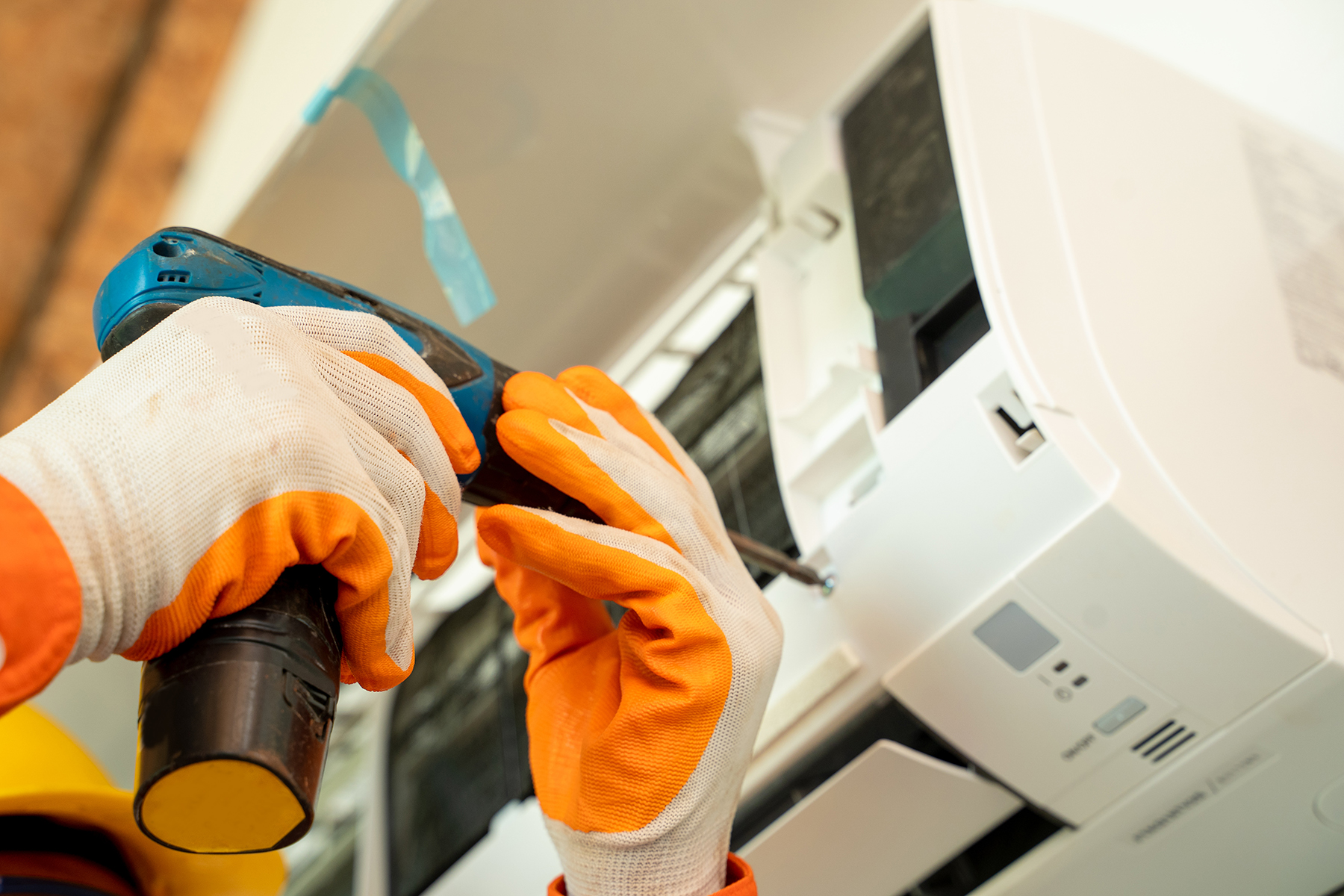
As well as looking for the EGAT score when you go shopping for household goods, watch out for appliances with the Green Label (ฉลากเขียว). This is a scheme from the Thai Industrial Standards Institute (TISI, สำนักงานมาตรฐานผลิตภัณฑ์อุตสาหกรรม) which recognizes products that are particularly environmentally friendly.
Not sure what to do with your old appliances? If you look around, you’ll often be able to get some cash in exchange for your old items. Many junkyards around Thailand buy waste by the kilo. They tend to offer particularly good prices for appliances like fridges and washing machines. Bangkok’s Wat Suan Kaew temple (วัดสวนแก้ว) also accepts donations of old appliances.
10. Recycle, recycle, recycle
There are no formal government recycling schemes in Thailand at the moment. However, eco-conscious residents across the country have taken matters into their own hands. You won’t find official recycling bins, but if you’re committed to helping the environment, there are plenty of local programs you can join to help live sustainably in Thailand.
For many years, self-employed trash collectors or saleng (ซาเล้ง – a motorbike with a metal sidecar attached) have made a living from picking up recyclables and selling them on. They’re a familiar sight on Thai streets, traveling with carts piled high with trash. Thailand’s large-scale trash imports have posed a threat to the saleng lifestyle, but they continue to work. If you live in a condo, you’ll probably find that the staff know the local saleng and will happily collect recyclables to pass on.
As well as these individuals, Thailand has an increasing number of recycling initiatives. Groups like Precious Plastic Bangkok distribute community recycling bins in different neighborhoods. They also host workshops and educational sessions to encourage recycling. The Won Project (โครงการวน) has set up recycling points around Bangkok for the collection of plastic bags, while YouTurn (YOUเทิร์น) has locations where you can drop your old bottles and other items.
Look out for some innovative players in Thailand’s growing green sector. Sign up for the Trash Lucky program to donate your recyclables and enter monthly draws to win prizes. Cirplas, a circular economy organization, accepts almost all forms of plastic waste, which it recycles into accessories and decor.
Ultimately, a lot of Thailand’s recycling is arranged by informal groups and unofficial organizations. If you have something you’re trying to recycle, ask around, as someone probably knows a place for it. It’s worth joining groups like the Bangkok Recycling Chain, which will help you ensure that you send as little to the landfill as possible. If you’re living outside the capital, don’t worry. Similar recycling chains now exist in most of Thailand’s cities.
Useful resources
- Bangkok Recycling Chain – group for reducing waste
- EcoThailand – NGO for environmental sustainability
- Zero Waste Thailand – organization for waste reduction


